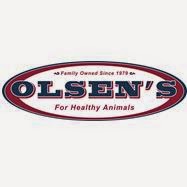If we love our dogs, then we naturally want to see them as happy and
healthy as possible. Many of us simply trust that any store-bought bag
of dog food will provide all the nutrition that their dog needs. This,
however, can be misguided faith. The various canned and dry foods
available offer varying amounts of the different nutrients that our dogs
need. What’s more, you need to be wary of marketing tactics that can
add to the confusion by making inflated claims.

There are many good dog foods on the market, but in order to find them you have to read the ingredients carefully before you buy. Buying the cheapest brand is not the way to go, either. You’ll typically get what you pay for. You may have to feed your dog twice as much of a cheap dog food to provide him with the same nutrition that a slightly more expensive brand would provide. Consider how much you’re really saving in the long run.
Dogs have been domesticated for a long time now, and their systems have adapted to life with humans. Providing your dog with optimal nutrition is similar to planning healthy meals for yourself. Protein should make up a significant portion of your dog’s diet. The rest should include vitamins, minerals, carbohydrates and fat. Make sure your dog always has fresh water as well.
Good protein sources for your dog include fish, chicken, beef and lamb; try to avoid meat by-products. Quality meat will supply much of your dog’s fat requirement, but you might consider supplementing this with a little fish oil, safflower oil or olive oil. Good sources of fat help your dog maintain healthy and shiny fur and skin.
The majority of vitamins and minerals can be provided by whole grains. Barley, oats and brown rice are ideal, and preferable to corn and soy. Some vegetables and fruits will give your dog added nutrients as well as digestive enzymes. Broccoli, cauliflower, apples and bananas are all good sources. Avoid onions, grapes and raisins. Once you’ve covered your dog’s basic needs, you can supplement his diet by occasionally offering leftover portions of meat (be sure to rinse any added pepper and salt off of it); yogurt provides various bacterial cultures that aid digestion.
Puppies differ from adult dogs in that they require a higher protein diet. This applies to your pet until he’s eight months or older. Good puppy food will contain about 38 percent protein whereas a quality adult dog food provides 25 percent or less.

There are many good dog foods on the market, but in order to find them you have to read the ingredients carefully before you buy. Buying the cheapest brand is not the way to go, either. You’ll typically get what you pay for. You may have to feed your dog twice as much of a cheap dog food to provide him with the same nutrition that a slightly more expensive brand would provide. Consider how much you’re really saving in the long run.
Dogs have been domesticated for a long time now, and their systems have adapted to life with humans. Providing your dog with optimal nutrition is similar to planning healthy meals for yourself. Protein should make up a significant portion of your dog’s diet. The rest should include vitamins, minerals, carbohydrates and fat. Make sure your dog always has fresh water as well.
Good protein sources for your dog include fish, chicken, beef and lamb; try to avoid meat by-products. Quality meat will supply much of your dog’s fat requirement, but you might consider supplementing this with a little fish oil, safflower oil or olive oil. Good sources of fat help your dog maintain healthy and shiny fur and skin.
The majority of vitamins and minerals can be provided by whole grains. Barley, oats and brown rice are ideal, and preferable to corn and soy. Some vegetables and fruits will give your dog added nutrients as well as digestive enzymes. Broccoli, cauliflower, apples and bananas are all good sources. Avoid onions, grapes and raisins. Once you’ve covered your dog’s basic needs, you can supplement his diet by occasionally offering leftover portions of meat (be sure to rinse any added pepper and salt off of it); yogurt provides various bacterial cultures that aid digestion.
Puppies differ from adult dogs in that they require a higher protein diet. This applies to your pet until he’s eight months or older. Good puppy food will contain about 38 percent protein whereas a quality adult dog food provides 25 percent or less.
© Copyright 2013, Sears Brands, LLC. All Rights Reserved.




No comments:
Post a Comment